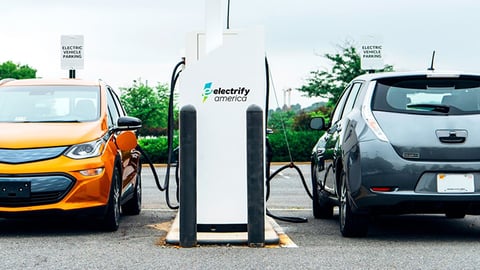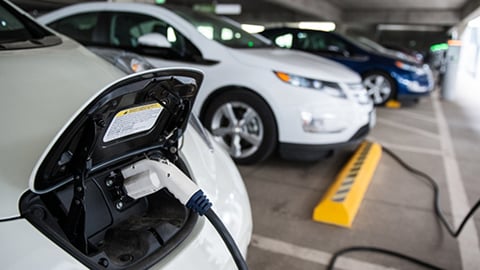Electric Vehicles Gaining Interest Among U.S. Drivers
ORLANDO, Fla. — More electric vehicles could be on the road soon as U.S. drivers warm to the new technology.
According to a new AAA survey, 20 percent of Americans, or 50 million people, said they are likely to go electric for their next vehicle purchase. That number is up from 15 percent in 2017.
With lower-than-average ownership costs, increased driving ranges and the latest advanced safety features, electric vehicles could have a strong future, the group said.
"Today, electric vehicles have mainstream appeal," said Greg Brannon, AAA's director of Automotive Engineering. "While concern for the environment is still a major motivator, AAA found U.S. drivers are also attracted to the lower long-term costs and advanced technology features that many of these vehicles offer."
Key Factors in Buying an EV
- Reliability (92 percent)
- Range (87 percent)
- Crash Ratings (77 percent)
- Cost (71 percent)
AAA's survey found that "range anxiety" is beginning to ease. Among those unsure or unwilling to choose an electric vehicle for their next car, 63 percent (down 9 percent from 2017) cited not enough places to charge as a detractor while 58 percent (down 15 percent from 2017) expressed concern over running out of charge while driving.
Not surprisingly, range anxiety is less of a concern for millennials (48 percent) than Generation X or Baby Boomers (64 percent and 66 percent, respectively).
While range is important to 87 percent electric and hybrid vehicle shoppers, it is not the only consideration. Reliability is king, with 92 percent of those likely to buy an electric or hybrid vehicle stating it is important when evaluating which car to buy.
Electric and hybrid car shoppers are also prioritizing crash ratings (77 percent), cost (71 percent), acceleration and handling (69 percent) and advanced safety technology such as automatic emergency braking and lane keeping assistance (60 percent).
Fewer drivers are concerned with style, color or design of the vehicle (34 percent), or brand of the vehicle (33 percent), according to AAA.
Although U.S. drivers may be more eager to buy an electric vehicle, having the right infrastructure will be critical to its widespread adoption, the association pointed out.
In 2018, the availability of charging stations had grown to more than 16,000 in the United States and, although anxiety over range has reduced, AAA's survey found consumer expectation for charging time while on the road may not align with reality. Nearly seven in 10, or 68 percent, of Americans feel that while out driving, a charging time of no more than 30 minutes is a reasonable amount of time to wait.
"Today's drivers are accustomed to a quick fill up at the corner gas station, but electric vehicle charging can sometimes take several hours," Brannon said. "With a little planning, electric vehicle owners can avoid a roadside inconvenience and, as technology improves, charging times will too."



